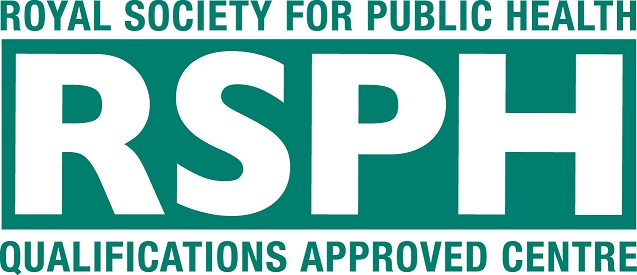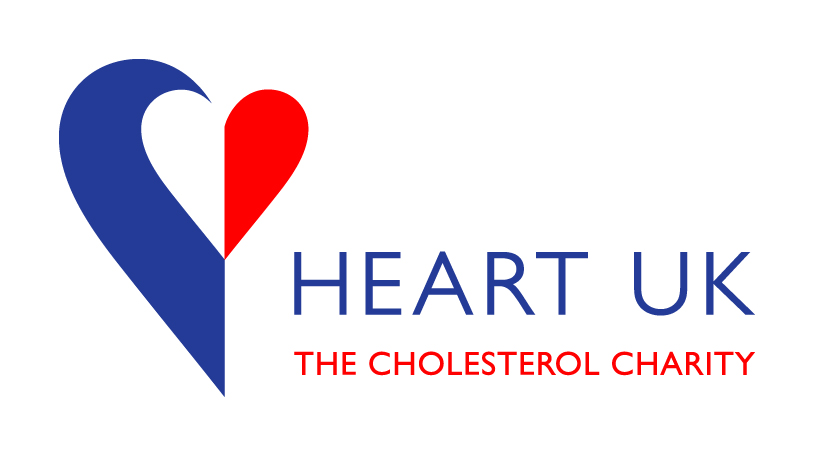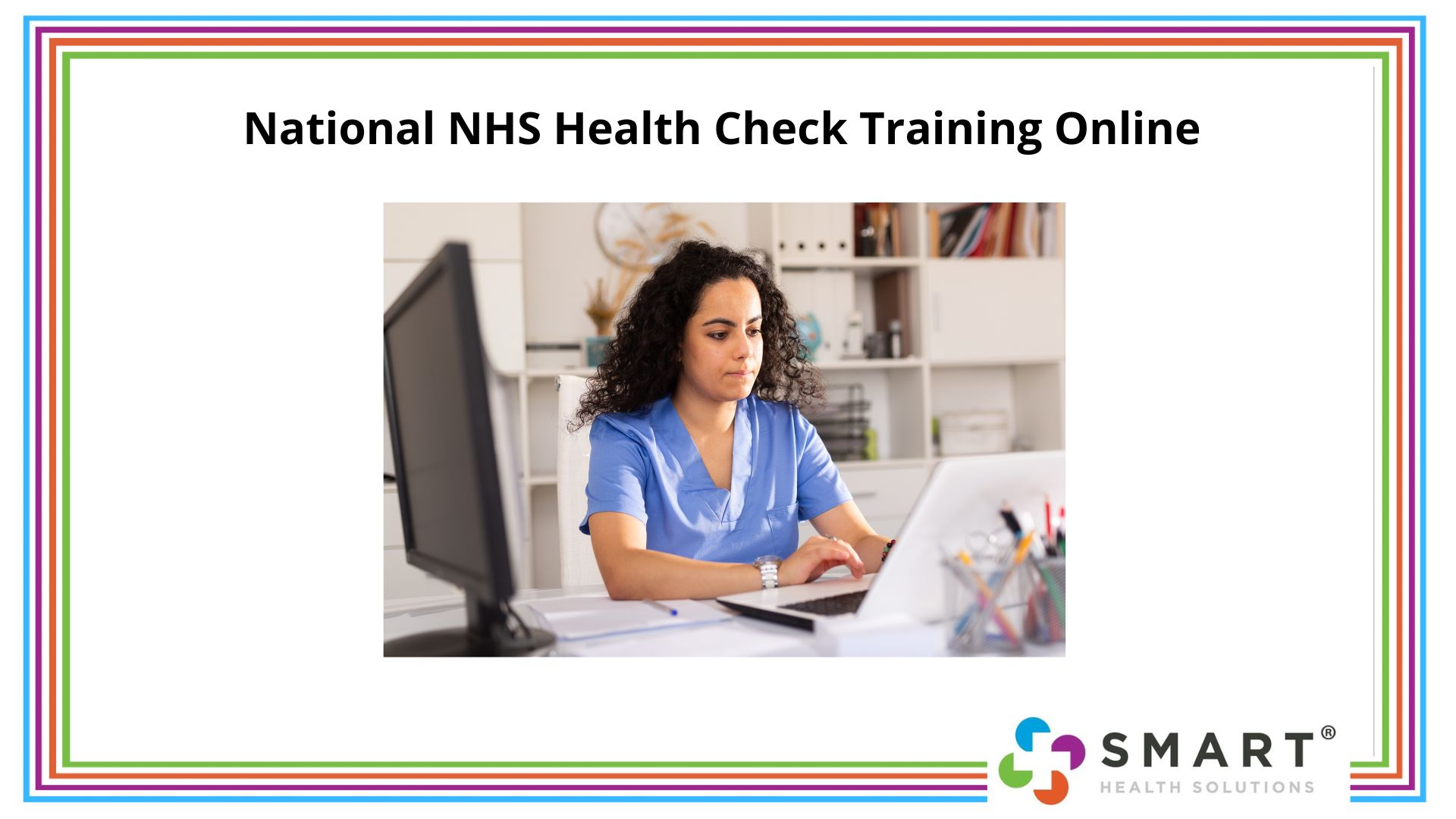NHS Health Check
Local Training Programme
Delivered by: Michaela Nuttall RGN MSc
Former Clinical Advisor Personalised Prevention OHID
Chair Health Care Committee HEART UK

A competent workforce is essential for the success of the NHS Health Check Programme
Training:
Our training offer has evolved to provide a more extensive Local training package, where we work with you to build a bespoke training programme tailored to your local needs.
Local training can be online or in person, and while it includes the same elements as the National training, we also offer lunch and learn sessions, admin-specific, skills, clinical topics etc in addition to the core offering.
Bespoke local training can be combined with training opportunities on the National Programme to meet local needs.
| Bespoke Local Full Day for 24 delegates | £2195 |
| Bespoke Local Clinical Refresher for 24 delegates | £1095 |
| Purchase further spaces for up to 30 delegates | £80 full day / £40 update per person over the initial 24 |
| Training Needs Analysis (Recommended) | £3,995 for up to 50 practices. |
| National Training Full Day via Zoom | £175 per attendee |
| National Training Clinical Refresher via Zoom | £125 per attendee |
All prices are exclusive of VAT.
Quotes are available on request for additional costs incurred for the trainer’s travel and accommodation to deliver face-to-face events.
- Customised webpage on Smart Health Solutions
- Customised promotional email using MailChimp
- Clickable registration link from the webpage and email
- Registration management
- Biweekly updates of registrant details
- Attendee certificates
- Evaluation report
- Practice Nurses
- Nurse Practitioners
- GPs
- Health Care Assistants
- Care co-ordinators
- Social Prescribers
- Administration
- Practice Staff
- Pharmacists
- Allied Healthcare Professionals
- Health Trainers & Champions
- Healthy Lifestyle Professionals
The NHS Health Check is a deceptively complicated and challenging programme. However, without ensuring that staff delivering checks are competent and confident, we won’t be able to impact overall CVD outcomes of inequalities.
The pandemic and staff turnover has further hampered, which means that many NHS Health Check Programmes have multiple challenges to overcome to achieve the ambitions of this national programme.
An ideal way to ensure that any training meets the local needs of the staff delivering the service is by gaining insight through a Training Needs Analysis (TNA).
 Michaela Nuttall RGN MSc
Michaela Nuttall RGN MSc
Founder & Director Smart Health Solutions
NHS Health Check Training Lead
Michaela is a Cardiovascular Nurse Specialist with a unique and varied experience across the NHS and beyond.
She developed her passion for prevention over 20 years ago and has worked within it ever since. In 2016 she left public health after working in the field for 16 years and now focuses on 3 main areas, as a Director for Smart Health Solutions, Associate in Nursing for C3 Collaborating for Health and Head of CVD Prevention at the Office for Health Improvement and Disparities.
She is the Chair of the Health Care Committee of Heart UK and an invited member of both the Nurses and The Guidelines and Information working party of the British and Irish Hypertension Society, elected member of the Association of Cardiovascular Nurses and Allied Health Professional Education working party, on a variety of editorial boards and the Global Cardiovascular Nursing Leadership Forum. Being a Trustee at PoTS UK keeps her firmly rooted in the challenges patients face in living with life-altering conditions.
Full Day Training
Starting with strengthening their understanding of the need for the programme and health inequalities that exist, this comprehensive session gives attendees the knowledge and understanding to support them in carrying out an NHS Health Check, including the significance of their results and CVD risk, acting on the filters and providing brief advice.
- State why NHS Health Checks are important.
- Identify non-modifiable risk factors for cardiovascular disease.
- Identify modifiable risk factors for cardiovascular disease.
- Know the NHS Health Check filters
- State how an NHS Health Check should be conducted.
- Identify how an NHS Health Check can assess and interpret the risk of cardiovascular disease.
- State how the risk of cardiovascular disease and opportunities for reducing this risk may best be communicated.
.
Clinical Refresher
A fast-paced session with a refresher of the whole programme and the opportunity to troubleshoot issues and vote on the three topics they would like included in their training. Topics include Audit C, AF, BP, Chol, CKD, CVD Risk, Dementia, GPPAQ, and familial hypercholesterolemia. Attendees value and enjoy this style of interactivity for their learning.
- State why NHS Health Checks are important.
- Identify non-modifiable risk factors for cardiovascular disease.
- Identify modifiable risk factors for cardiovascular disease.
- Know the NHS Health Check filters
- State how an NHS Health Check should be conducted.
- Identify how an NHS Health Check can assess and interpret the risk of cardiovascular disease.
- State how the risk of cardiovascular disease and opportunities for reducing this risk may best be communicated.
.
Understanding CVD Risk
Often viewed as the most challenging part of the programme, this session enables learners to understand CVD Risk complexity and how best to communicate. Starting with the basics of what is happening in our arteries, the impact of modifiable and non-modifiable risk factors and the difference between atheroma growth and plaque rupture causing a heart attack or stroke. Then how CVD risk algorithms work, QRISK for NHS Health Checks, limitations, and how to use and communicate results.
- Identify non-modifiable risk factors for cardiovascular disease.
- Identify modifiable risk factors for cardiovascular disease.
- State how atheroma forms inside arteries.
- Know the difference between atheroma growth and heart attack.
- State how QRISK algorithm works.
- Identify the different methods for CVD Risk communication.

You may be interested in:
What previous attendees have said:
Rate knowledge before training
3.4
Rate likelihood of using what has been learnt
4.7
Rate knowledge after training
4.5
Rate trainers’ delivery
4.8

We are a registered Centre for the Royal Society of Public Health (RSPH), and HEART UK supports our cardiovascular training. The NHS Health Check Competency Framework underpins our training.
We are proud of our strong heritage in supporting the NHS Health Check Programme, especially for training we have been providing since 2008 and that we have won all training tenders we have bid for.



